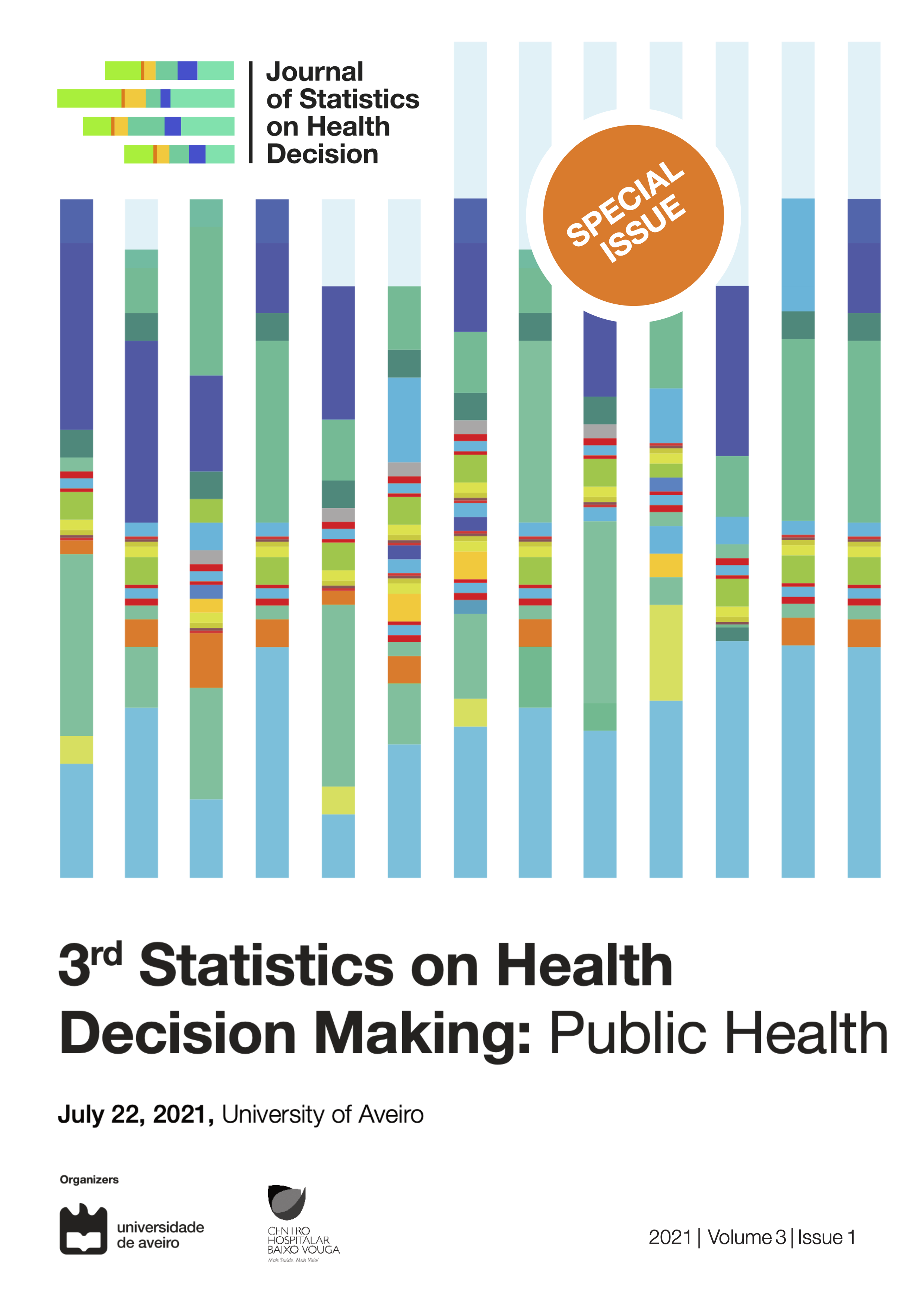Preliminary validation study of the Portuguese version of the Functional Assessment of Cancer Therapy - Cognitive Function (FACT-Cog) – Version 3
DOI:
https://doi.org/10.34624/jshd.v3i1.24904Keywords:
Validation study, Preliminary results, Functional Assessment of Cancer Therapy - Cognitive Function – Version 3, FACT-Cog-v3, Perceived cognitive functioning, Cognition, Breast neoplasms, Cancer survivorsAbstract
Introduction:
The Functional Assessment of Cancer Therapy - Cognitive Function– Version 3 (FACT-Cog) [1] is one measure of a series of questionnaires dedicated to assessing other chronic illnesses and conditions under the umbrella of Functional Assessment of Chronic Illness Therapy (FACIT). FACT-Cog is one of the most well-known and widely used self-report instruments, specifically developed to evaluate cognitive complaints in cancer patients. No validity study of the Portuguese translation of this psychological assessment instrument is known, despite its clinical relevance.
Cognitive impairment is one of the most frequent side effects reported by breast cancer survivors [2]. Perceived cognitive functioning (PCF) is an important outcome in research and clinical practice with this population [2]. Subjective assessment is an effective and valid approach to collect data representing patients’ PCF [3], as confirmed by objective evidence showed with neuroimaging [4]. It may also be clinically very useful to understand patient distress, perception of cognitive function and to identify patients with subtle deficits who may benefit from a neuropsychological evaluation or a more frequent monitoring [5,6].
In this work, the preliminary study of the psychometric characteristics of the FACT-Cog in a sample of Portuguese breast cancer women is described, namely internal consistency and concurrent validity.
Methods:
This preliminary validation study was performed on a convenience sample of 73 female breast cancer survivors aged 29 to 64 years old (M=45.51 years; SD=8.59). Participants answered an online questionnaire protocol consisting of: socio-demographic and clinical questions, the FACT-Cog, and the Cognitive Functioning Subscale of the European Organization for Research and Treatment of Cancer Quality of Life Questionnaire – version 3(EORTC QLQ-C30) [7,8].
This study used the licensed FACIT’s Portuguese translation of the FACT-Cog. The FACT-Cog is a 37-item self-report measure that consists of four subscales: Perceived Cognitive Impairments (PCI); Comments from Others (Oth), Perceived Cognitive Abilities (PCA) and Impact on Quality of Life (QoL). Higher scores indicate better PCF. The reliability and validity of these scores have been widely established [9,10].
EORTC QLQ-C30 is a measure that assesses health-related quality of life in cancer patients. For this study, the 2 items of the subscale were used, with higher scores representing better PCF. This measure presents good psychometric properties [8].
All statistical analyses were performed using the software IBM SPSS Statistics version 21.0. Descriptive statistics were calculated. Reliability was established by internal consistency analysis and validity was evaluated through construct validity. Pearson’s correlation coefficient was used to evaluate construct validity, examining the associations between the four subscale scores of the FACT-Cog and the Cognitive Functioning subscale of the EORTC QLQ-C30. All significance tests were conducted using a significance level of p<.05.
Results:
FACT-Cog subscales means, standard deviations and Cronbach’s alphas are presented in Table 1. All FACT-Cog subscales presented high internal consistency, with Cronbach’s alpha ranging from .88 to .96. Concurrent validity was assessed through the strength of the correlation with the cognitive functioning subscale of the EORTC QLQ-C30. Significant correlations between the EORTC QLQ-C30 cognitive functioning subscale and all FACT-Cog subscales were found (PCI: r=.69; QOL: r=.69; Oth: r=.45; PCA: r=.60, all ps<.001), indicating good concurrent validity.
Discussion:
The results obtained lead us to conclude that the Portuguese version of the FACT-Cog has good psychometric properties regarding internal consistency and concurrent validity, like the original and other versions. Therefore, we can conclude that the FACT-Cog can be a useful and valid scale to assess PCF in the cancer population. Nevertheless, we suggest that more efforts should be made to study the psychometric properties of this instrument in the future, with a larger sample and including diversified cancer survivors’, to corroborate and extend these results and conclusions.
References
Downloads
Published
Issue
Section
License
When submitting an article to the Journal of Statistics on Health Decision (JSHD), authors certify the following clauses:
- Originality and single submission – The contents presented in the article have not been published previously in whole or in part, and were not submitted or are not under active consideration elsewhere prior JSHD decision. The article is authentic and does not contain plagiarism.
- Authorship – All authors reviewed the article, agreed with its content, and agreed to its submission to the JSHD. All the authorship criteria stated by The International Committee of Medical Journal Editors Guidelines were met.
- Conflicts of interest – Any conflict of interests were declared. If authors have no declaration, it should be written (in the acknowledgements section): “The authors declare no conflict of interests”.
- Ethics committee and informed consent (if applicable) – The current research was approved by an independent ethics committee and subjects gave their informed consent before they were enrolled in the study.
- And authors agree to the Open Access license agreement of the Journal of Statistics on Health Decision, stated bellow.





